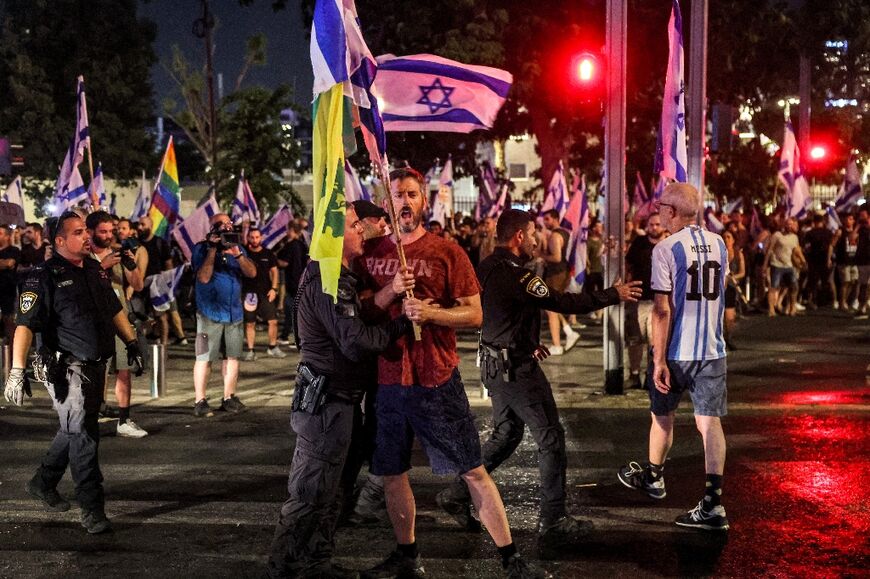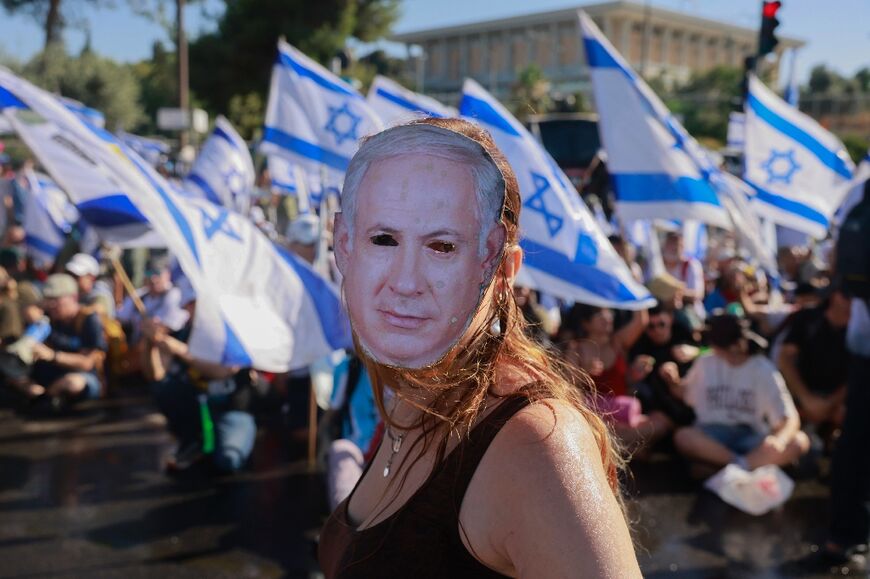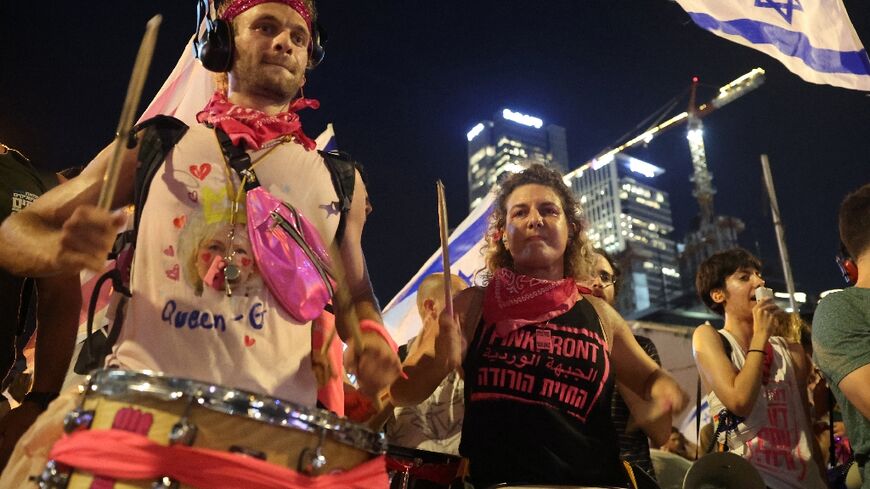Israel braces for unrest over divisive judicial reform

Israeli protesters vowed Tuesday to keep up pressure on the hard-right government with more demonstrations this week following parliament's vote for a divisive judicial reform which has drawn criticism from allies abroad.
The decision by Prime Minister Benjamin Netanyahu's ruling coalition to push through a key plank of its controversial reform package on Monday has already sparked legal challenges and clashes on the streets.
The new legislation curbs judicial review by Israel's top court of some government decisions, and critics fear it could pave the way to more authoritarian government.
Protest organisers said more rallies were planned in the coming days, including on Wednesday near the Supreme Court in Jerusalem and in Tel Aviv -- the epicentre of anti-government rallies since January when the proposed reforms were unveiled.
"We lost this specific battle... but we are determined to fight against this bad government," said activist Guy Maidan.
"This is going to be a long battle... to get Israel's liberal democracy back."
Netanyahu's coalition government, which includes far-right and ultra-Orthodox Jewish parties, argues the reforms are needed to to ensure a better balance of power.
Doctors on Tusday walked out for several hours to protest parliament's vote, before a court ordered them to return to work.
Zion Hagay, head of the Israel Medical Association, said in a statement announcing the walkout that a "hand extended for dialogue was left hanging in the air", warning of "a war that only has losers".
The Tel Aviv labour court ordered an immediate return to work, citing no "urgency in holding the strike today" and saying hundreds of patients could be harmed by a strike of such magnitude.
"The fears of the Medical Association at this stage are theoretical, while the severe damage to the patients is real," according to the court.
- 'Angry' -
The association's move came after the Histadrut trade union confederation threatened a repeat of the general strike it called in March over the reforms.
Amid the instability, the Tel Aviv Stock Exchange fell 3.02 percent on Tuesday after slumping 2.21 percent the previous day.
The Israel Bar Association was among numerous groups to file petitions to the Supreme Court aiming to strike down the new legislation.
"A black day for Israeli democracy," read the blackened front pages of three of the country's top newspapers, which carried an advert by opponents of the judicial reforms.
Protesters remained on the streets late into the night following the vote Monday, with student Josh Hakim saying he was "really, really sad about what's happening to this country".
"You see what is happening on the streets, everyone is so angry," he told AFP at a rally near parliament in Jerusalem.
Police said 58 people had been arrested at demonstrations in Tel Aviv and elsewhere.
Officers used water cannon to disperse protesters on a major road through Tel Aviv, where the crowd waved Israeli flags.
- Opposition slams 'puppet' PM -
Netanyahu failed to appease opponents with a televised address late Monday, in which he pledged to hold talks during the upcoming parliamentary recess.
"Reach a comprehensive agreement on everything and we will add more time should it be needed," he said of the reform package which has split the nation.
The embattled premier showed signs of fatigue in the chamber, as he sat between his defence and justice ministers just a day after unscheduled surgery to fit a pacemaker.
Netanyahu defended the bill -- the first major piece of his government's judicial overhaul to become law -- as a "necessary democratic step".
It limits the powers of the Supreme Court in striking down government decisions on ground of their "reasonableness".
Deep divisions within his own coalition and mass protests prompted the premier to temporarily halt the legislative process in March to allow time for talks with the opposition.
But within weeks politicians were blaming each other for the breakdown in negotiations.
On Monday, the opposition walked out of the chamber to boycott the vote, which passed with the support of 64 of its 120 lawmakers.
Opposition chief Yair Lapid slammed Netanyahu's "unprecedented show of weakness".
"There is no prime minister in Israel. Netanyahu has become a puppet of messianic extremists," he said in reference to the premier's far-right allies.
Israel's top foreign allies have expressed alarm over the country's political instability, with the White House describing Monday's vote as "unfortunate".







